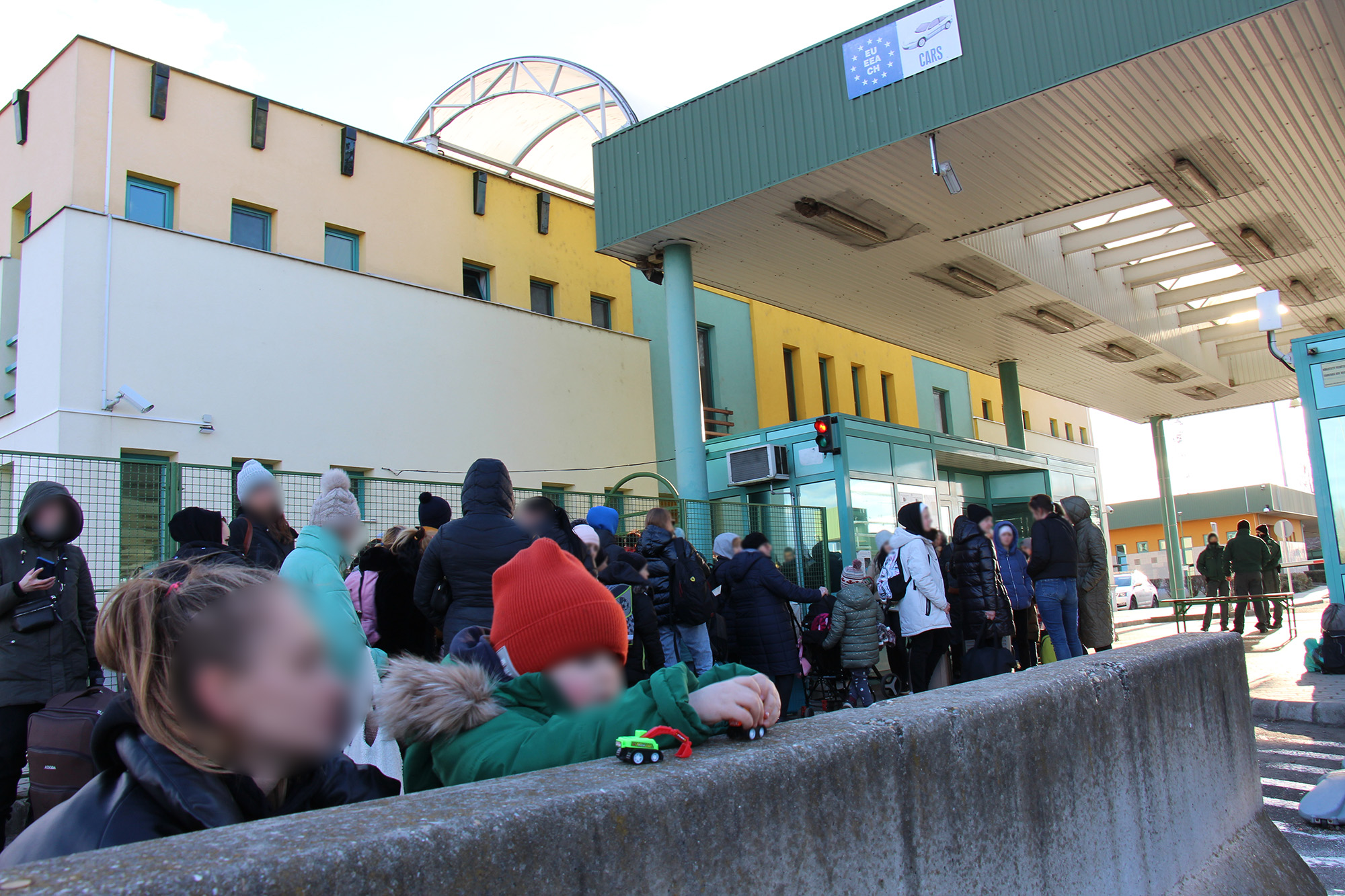
Charitable non-governmental or aid organizations mobilized to help the people who have left their homes, hopefully only temporarily. We have summarized for you where and how you can help those in need.Continue reading
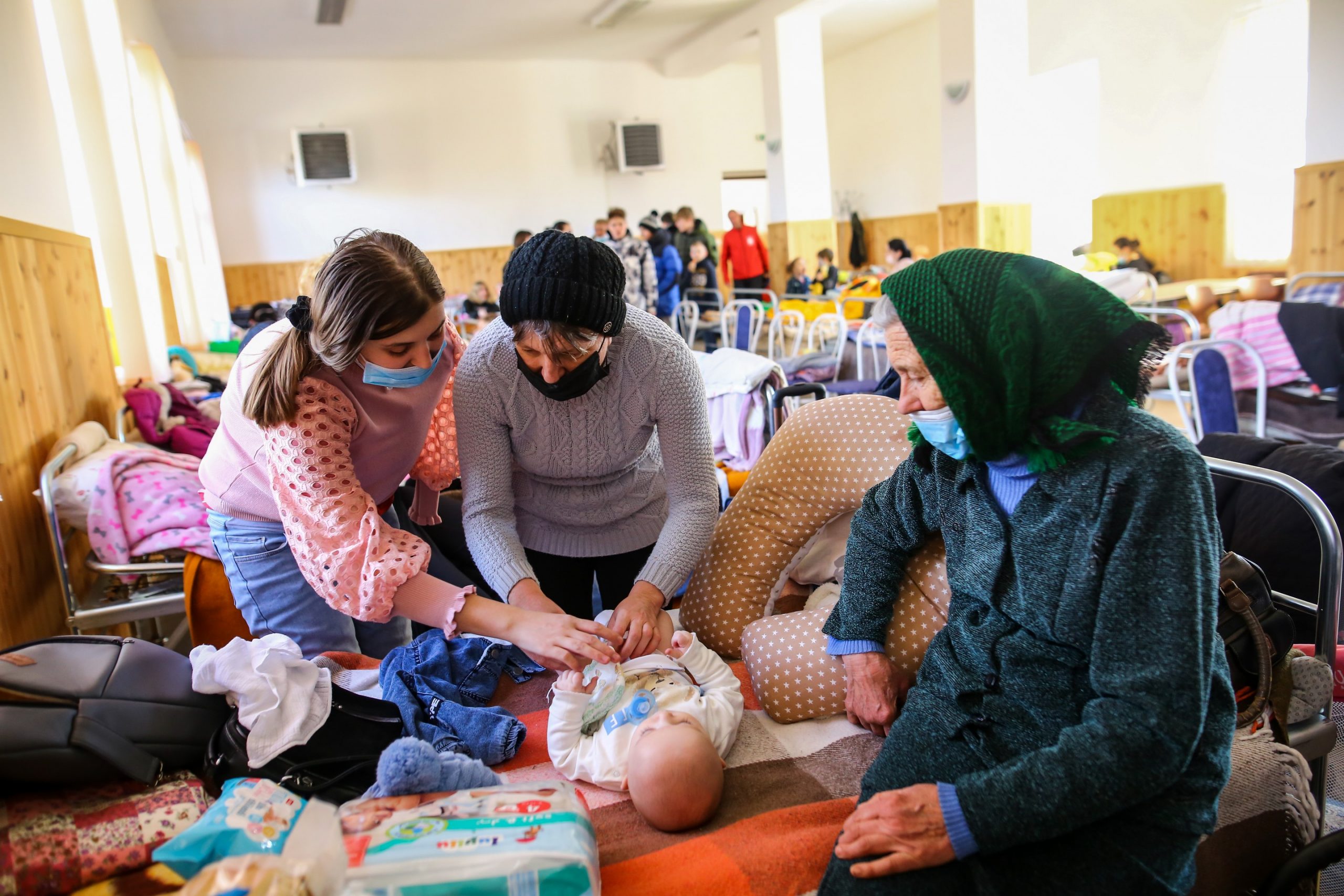
It is the seventh day of the Russian-Ukrainian war. Hundreds of thousands are fleeing. Hungary has opened its borders and is receiving the fleeing crowds with great care at the border stations. Our sister-site, Ungarn Heute, visited the Catholic Caritas Relief in Barabás and the Hungarian Charity Service of the Order of Malta in Beregsurány to do an on-the-spot report at the Hungarian-Ukrainian border on Tuesday. The people fleeing from the war told them heartbreaking stories. The author of the article, Éva Trauttwein, speaks excellent Russian, so she was able to talk to Ukrainian citizens without an interpreter.
This article was originally published on our sister-site, Ungarn Heute.
Three women sitting around a 5-month-old baby on the bed. Great-grandmother; her daughter’s grandmother and the baby’s mother, her daughter-in-law.
After the peace negotiations failed, we couldn’t help it. We had to leave our house and livestock behind. Relatives took us in, but our home is in Fornos. In this small village, the houses are almost empty. Only the old people stayed behind. Will we ever return home?…”
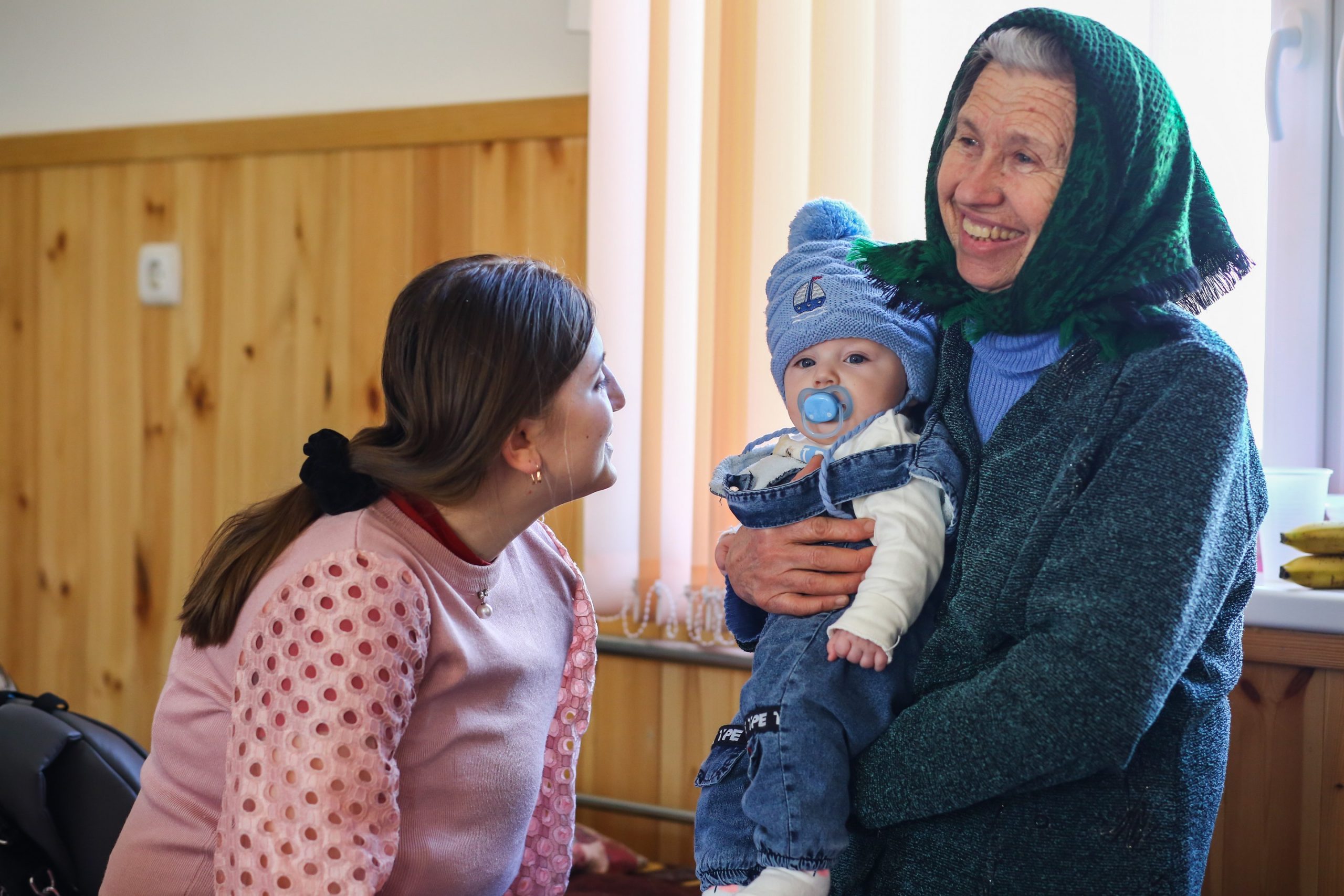
Photo by Attila Lambert
The Bányai family is one of the hundreds of thousands who had to leave their country. They are now safe, having found refuge with Catholic Caritas in Barabás. The Hungarian relief organizations, the Maltese, Caritas, the Red Cross, the relief services of different denominations are working in coordination, they are present at all border stations. The cooperation – municipalities of the villages, state authorities, civilians, numerous volunteers – is unprecedented, complete care is provided to the refugees. What is provided is much more than food and clothing: people are welcomed, listened to, and helped.
Father Ferenc Árvai, director of Caritas of the Archdiocese of Eger, has been in Barabás for days. He is everywhere, and he especially provides a good atmosphere.
Exhausted people arrive here, hardened for hours in freezing temperatures, from insecurity, after days of travel. They need rest and kind words. Most of the refugees are mothers and grandmothers with children. They calm down when they see their little ones become lively again. When their bellies are full, it awakens the child in them, and they can laugh again, play,”
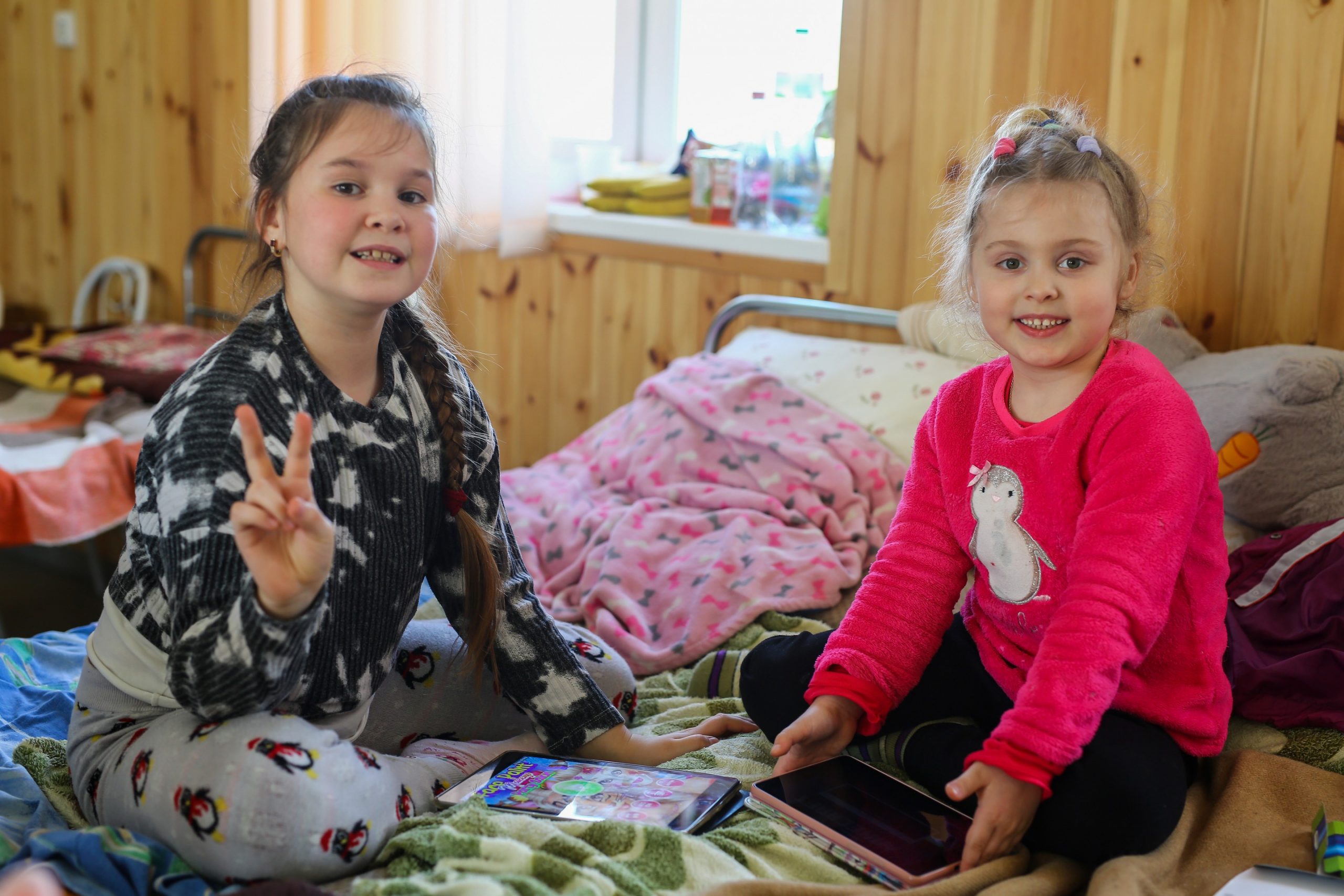
Photo by Attila Lambert
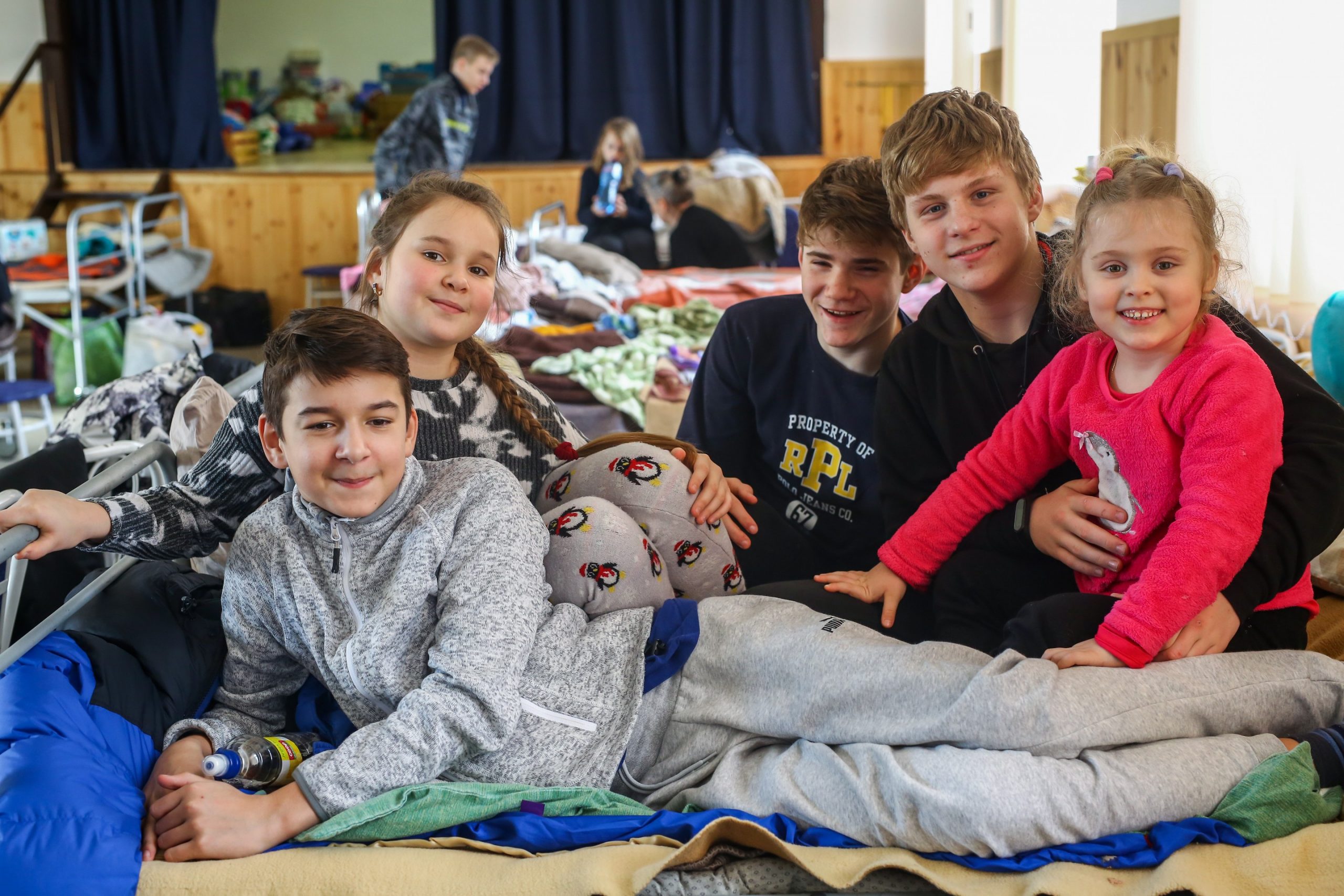
Photo by Attila Lambert
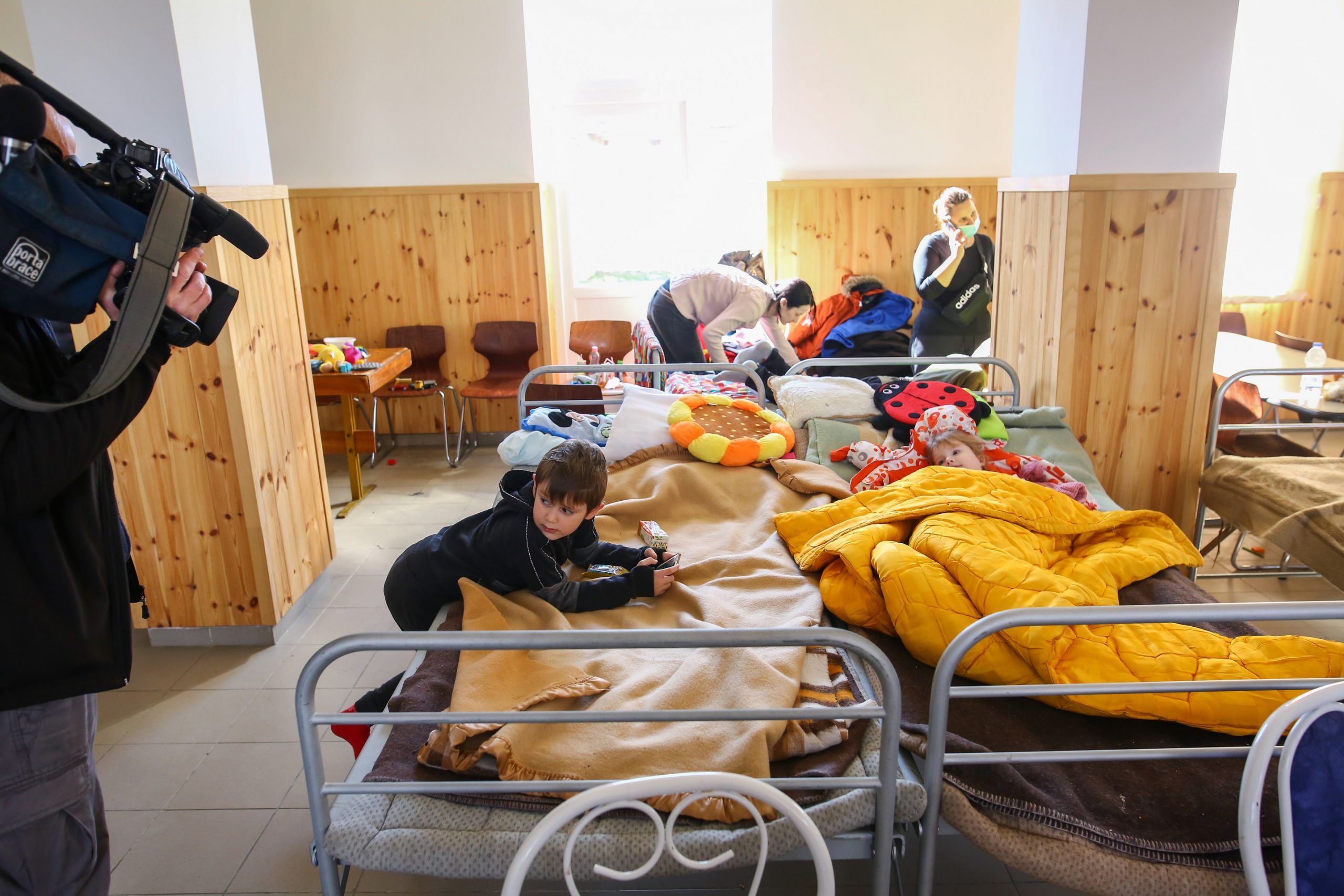
Photo by Attila Lambert
Beds are set up in the large hall of the village culture house. The sun lights up the room, it is warm and quiet here. On the beds, a girl plays with a doll, boys are busy with their cell phones, a mother covers her sleeping daughter. The first stop on the flight gives people strength and hope. “Their tank” is filled up here with the loving care of the volunteers. They are not only provided with everything they need, the charities also take care of the rest: they help them continue their journey, and provide accommodation if requested.
In the first days of the Russian invasion, mainly members of the Hungarian minority living in Transcarpathia made their way to Hungary. Now more and more people are coming from eastern Ukraine. So did Oksana, a young mother with two children from Kyiv. They were on the road for four days. Her husband took them to the border. He is not allowed and does not want to leave – with tears in her eyes the woman explains how her husband wants to fight for their homeland.
Will we ever see each other again? Will there be a return?”
Oksana says:
The war is horrible, war is madness. My husband decided we had to bring our children to safety; we succeeded, we are in safe custody here. Thanks to Caritas, we also know how to continue. But I am so afraid for the ones I love.”
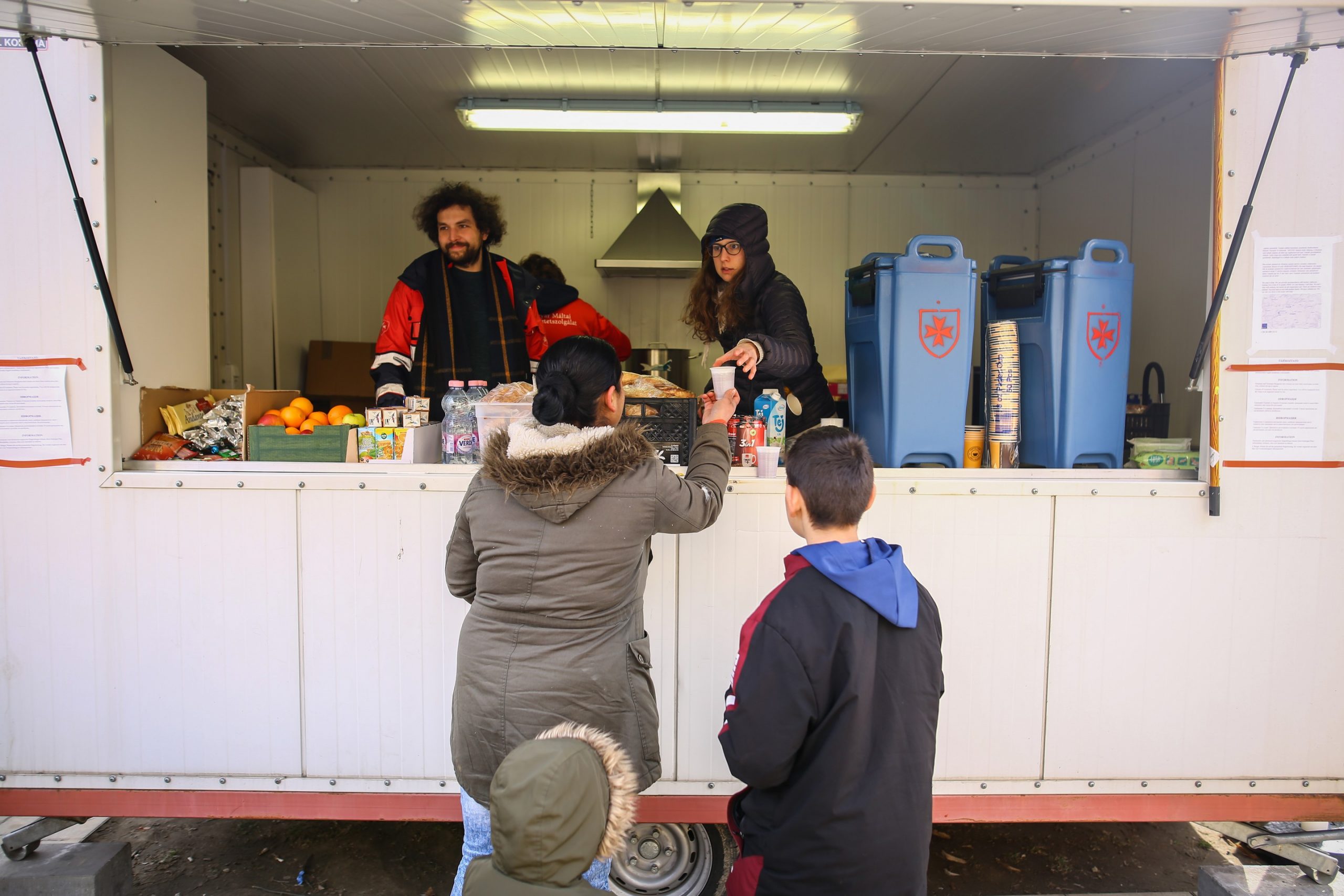
Photo by Attila Lambert
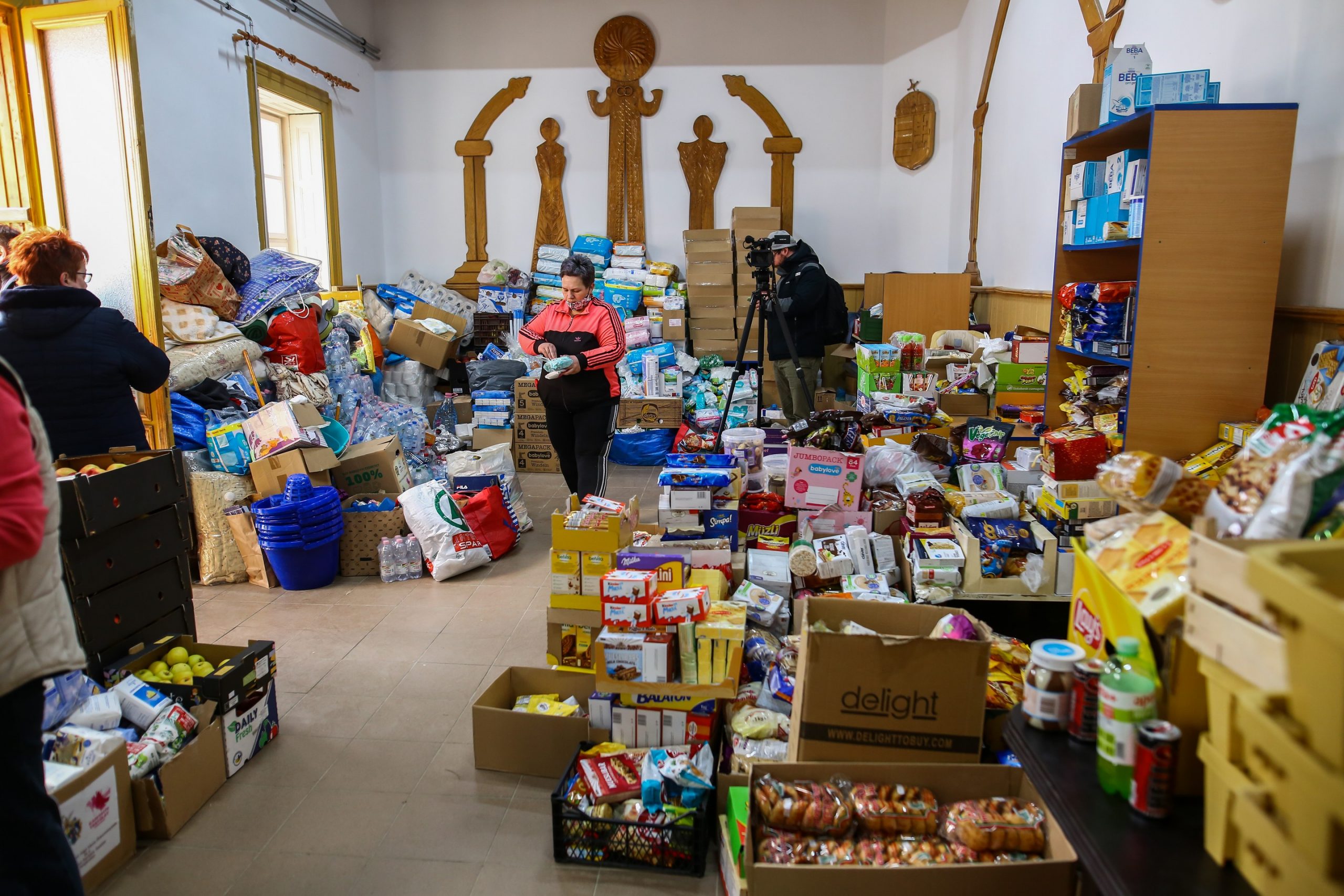
Photo by Attila Lambert
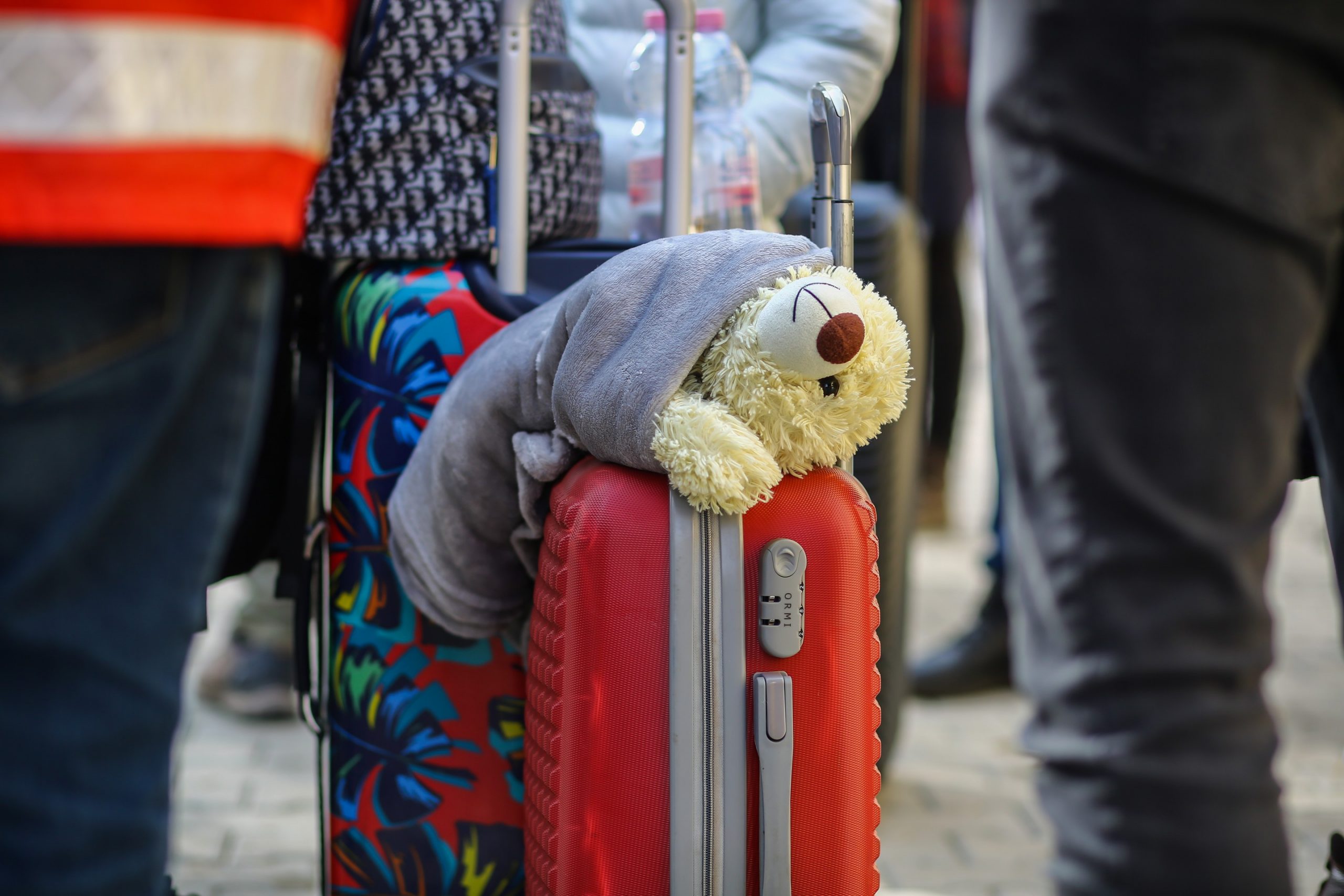
Photo by Attila Lambert
The stations in Barabás and Beregsurány are bustling with activity. Minibuses are constantly bringing new groups of people from the border. By the hour, 200 people are taken care of here. The passengers are immediately addressed and invited into the warmth of the reception hall. They are exhausted, the volunteers take care to make contact. The smiles and friendly attention inspire confidence. “That is what is needed here above all,” says Attila Vándor, Malteser volunteer. The first conversations reveal who needs what. What is wanted first and foremost is transportation. “So far, we have been able to fulfill all wishes easily. People – Attila points to three cabs – come spontaneously, offering their services.” Zsolt Kocsis with two colleagues is here from Tatabánya. Their families and relatives have donated a large amount of food. They brought that here, now they will take three families to Budapest. They are also taking care of accommodation.
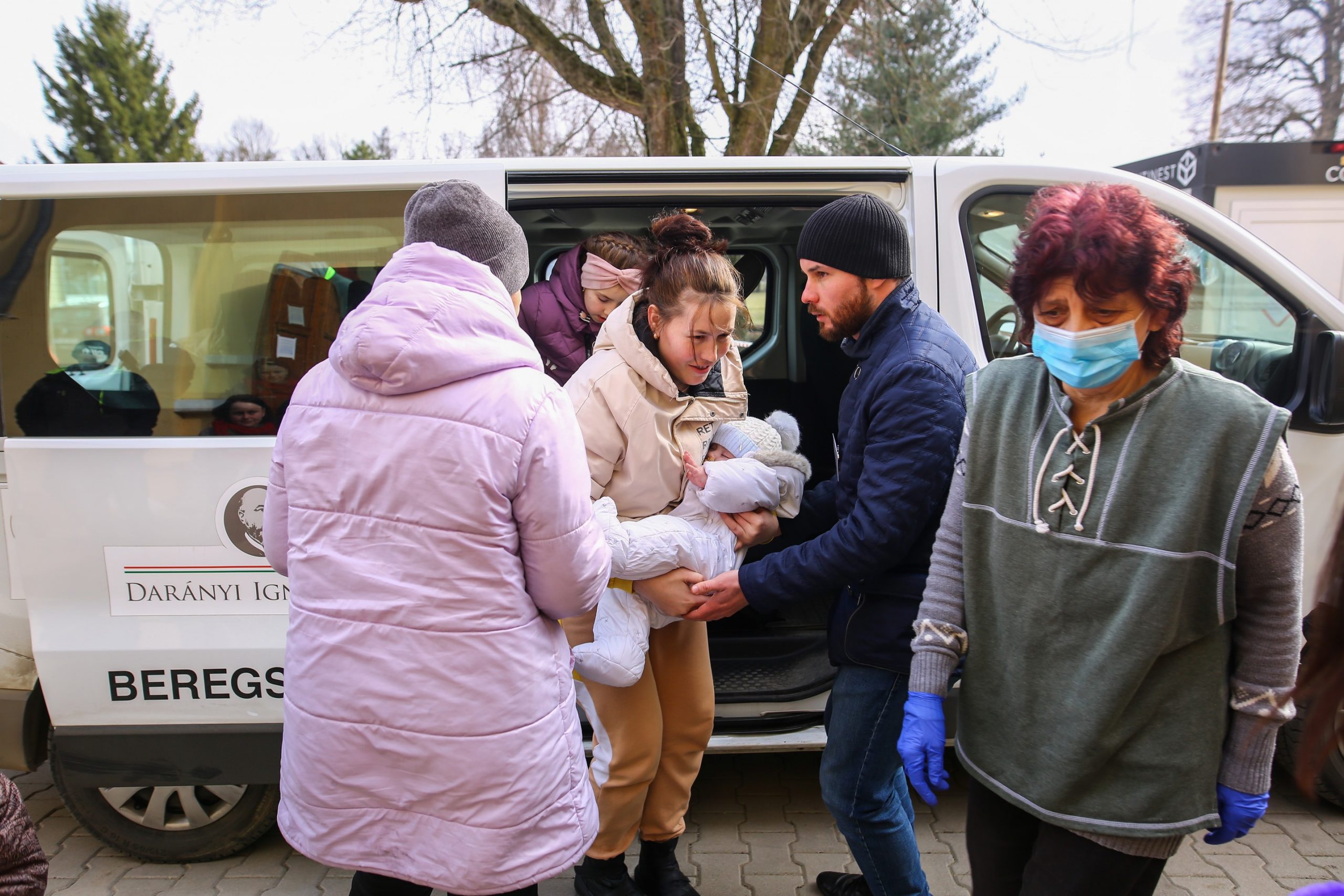
Photo by Attila Lambert
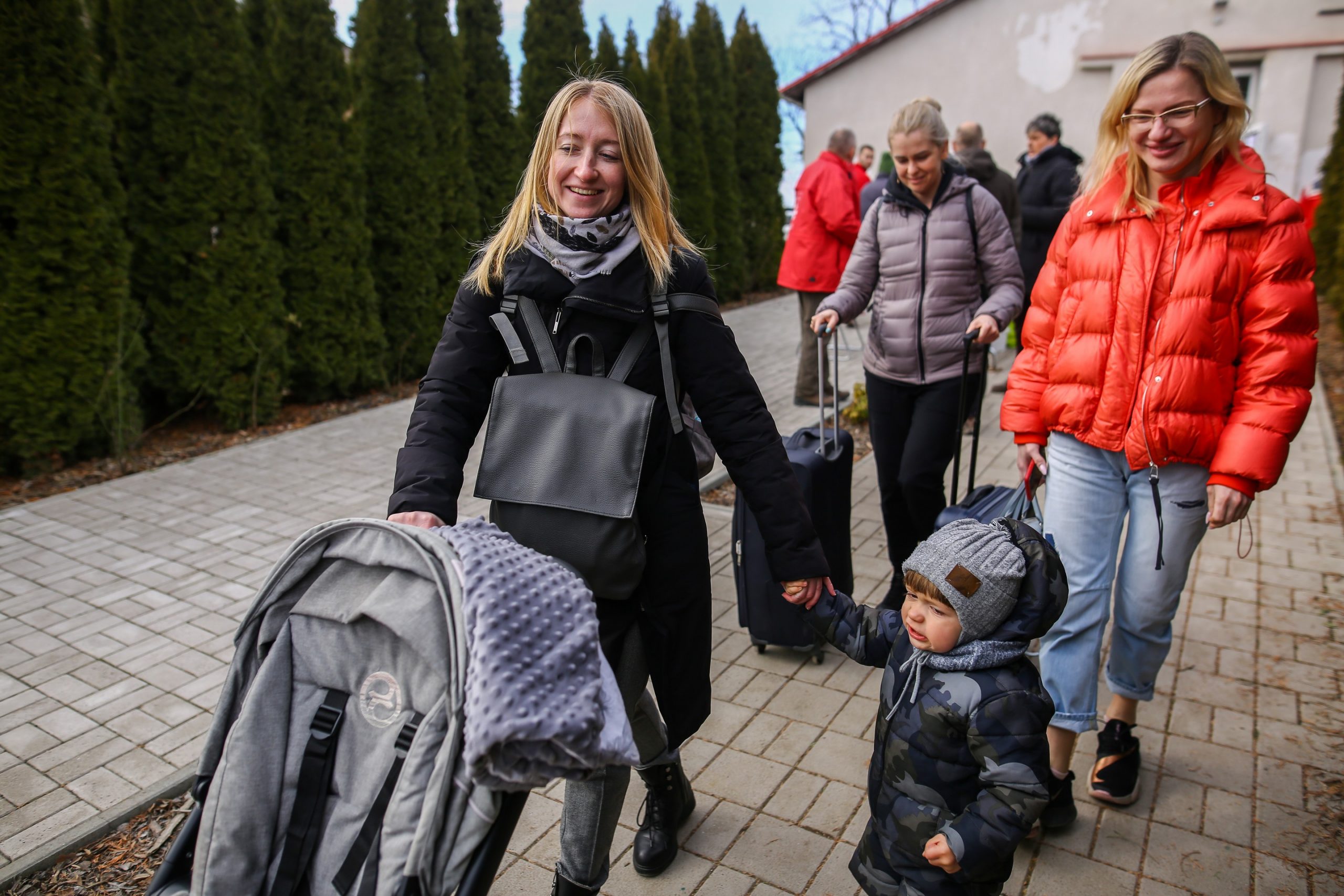
Photo by Attila Lambert
The headquarters, the hinterland of the relief organizations, receive offers so that everyone is secured a place to stay. In the meantime, the supply for Ukrainian territories is also taken care of. Unprecedented amounts of food, clothing, and medicine are being delivered to Transcarpathia. 400,000 people from the eastern war zones have been evacuated to Transcarpathia, to areas where there is great need. People there live from day to day, the supply situation is critical. Malteser International is working on a systematic, permanent supply. Through local partner organizations, aid reaches the people quickly and directly. Thanks to the aid deliveries, there is no shortage of basic foodstuffs such as bread.
Fear for the future is in the hearts of all people. The war claims more and more victims, will there still be a home? Is there a way back? The future is uncertain.
Article written by Éva Trauttwein/Ungarn Heute
Photos and featured image by Attila Lambert